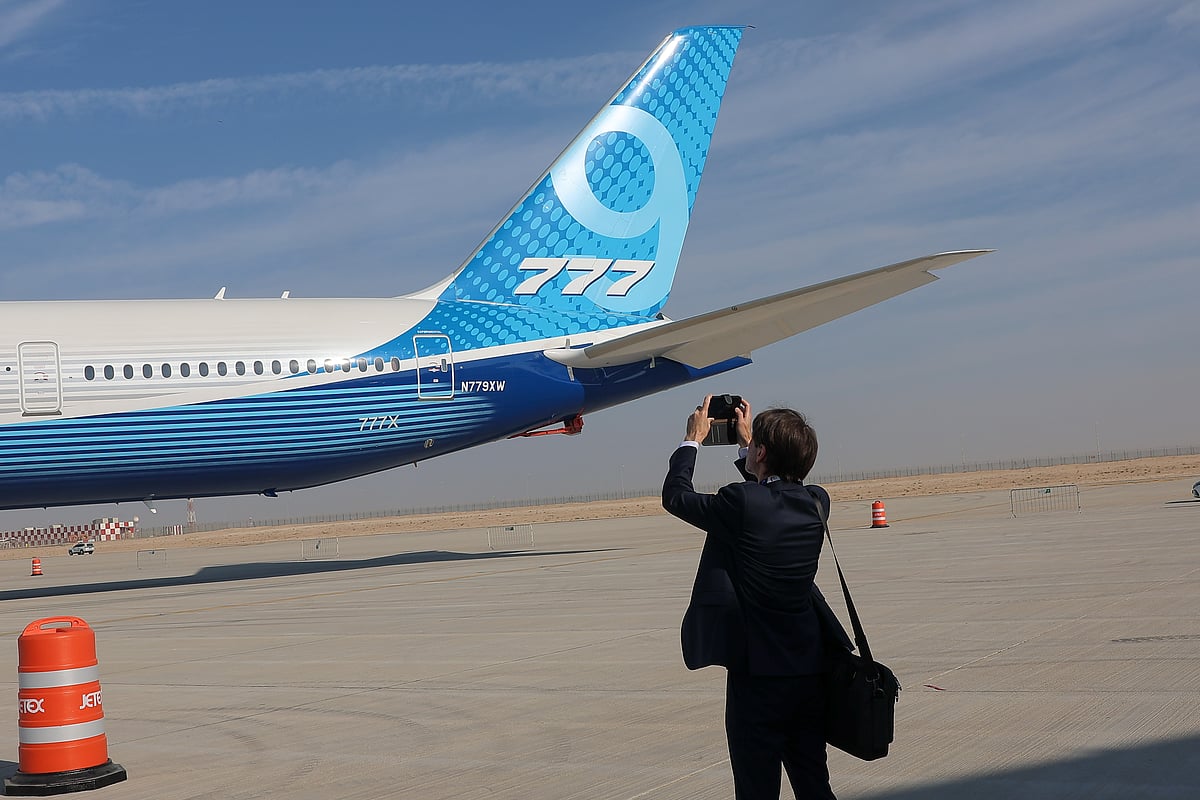Emirates places big Boeing order, Dubai air taxi takes flight —what travellers need to know
flydubai’s engine order, Emirates’ Starlink Wi-Fi upgrade set stage for better flying

Dubai: Emirates and Boeing stole the spotlight on the opening day of the Dubai Airshow 2025 by ordering 65 more Boeing 777-9 aircraft.
This means more flights, newer planes, and higher standards for passengers. Emirates is now set to operate 280 Boeing 777s - the largest fleet of the wide-body aircraft in the world.
The most exciting event of the day? Joby’s electric vertical take-off and landing (eVTOL) special flight demonstration – reportedly the first time Joby has flown a piloted eVTOL at an international air show – gave attendees a glimpse of what the passenger experience could feel like when the service launches commercially in Dubai next year.
The aircraft performed a smooth, 10-minute demonstration, highlighting its take-off, hover, and landing capabilities.
Plus, Emirates is upgrading its fleet with Starlink satellite Wi-Fi, giving all passengers free high-speed internet—perfect for work, video calls, social media, and even playing video games.
Airline bosses have admitted deliveries will stretch well into the 2030s, with the first arrivals not expected until 2027.
Emirates has been waiting for its 777X aircraft for more than twelve years since its first commitment, with delivery dates now set for at least two years from today, and full order completion possibly spanning over a decade.
During this time, Emirates has repeatedly had to adjust its fleet planning, cabin designs, and business strategy while waiting for Boeing to resolve certification delays.
Airline President Sir Tim Clark even expressed frustration publicly after learning about the latest delays from the media, saying he was “a little bit miffed” not to have been informed directly.
During the airshow, Sheikh Ahmed bin Saeed Al Maktoum, Chairman and Chief Executive, Emirates Airline and Group reassured that every new jet is part of a careful growth plan. “Some people may have doubts about Emirates’ large aircraft order, but I can assure you that every single order has been carefully factored into our long-term growth plans,” he added.
“Flying a young and modern fleet with innovative cabin products has always been a cornerstone of Emirates’ strategy, and we look forward to continue working closely with Boeing to receive delivery of our first 777-9s from Q2 of 2027, and to equip our latest aircraft with state-of-the-art, industry-leading onboard products,” said Sheikh Ahmed.
flydubai ramps up efficient engines
flydubai made its own headlines by ordering 60 GE engines to power the 30 Boeing 787-9 aircraft the airline ordered during the last Airshow.
This will allow flydubai reach further, adding more long-haul routes and extra seats for the growing demand. For everyday fliers, this means more travel options, hopefully at competitive prices.
Ghaith Al Ghaith, Chief Executive Officer at flydubai, said, “The performance and durability of our engines play an integral role in the success of our operations and fleet expansion plans, especially as we prepare to welcome the Boeing 787 aircraft to our fleet in the coming years. We look forward to a long and successful partnership with GE Aerospace as we embark on the next chapter of growth.”
Strong Africa- focus
Ethiopian Airlines also announced a deal for 11 new Boeing 737 MAX jets. For travellers in Africa and beyond, this means more routes, smoother flights, and a bigger, modern fleet. Ethiopian’s partnership with Boeing aims to improve passenger comfort while supporting fast, reliable connections between Africa, the Middle East, and Europe.
Boeing also scored a deal from Air Senegal. The West African carrier has committed to order nine 737 MAX airplanes. When final, the 737 MAX order will be the airline's largest-ever fleet purchase – and first Boeing airplane order since 2004 – as it looks to expand service regionally and internationally.
With the introduction of the 737-8 to its single-aisle fleet, Air Senegal will expand its network in Europe and launch new routes from Dakar to the Middle East and Americas. The 737 MAX will also enable Air Senegal to serve secondary European cities, allowing fliers to save time bypassing major hubs.
Helicopters for swift city transfers
Riyadh Air and The Helicopter Company also revealed plans to launch helicopter transfers that will quickly move people from Riyadh’s main airport to city hotspots. While still being studied, such services promise to speed up travel within the city—making life easier for both residents and visitors.
What does this mean for passengers?
These major deals mean airlines are investing in more comfortable, high-tech fleets and better passenger experiences. For regular travellers, it promises more flight options, faster Wi-Fi, quicker trips across cities—and a boost to tourism and jobs.
Dubai, Riyadh, and Addis Ababa are set to become even stronger global travel hubs, making flying smoother and more connected for all.
Network Links
GN StoreDownload our app
© Al Nisr Publishing LLC 2026. All rights reserved.